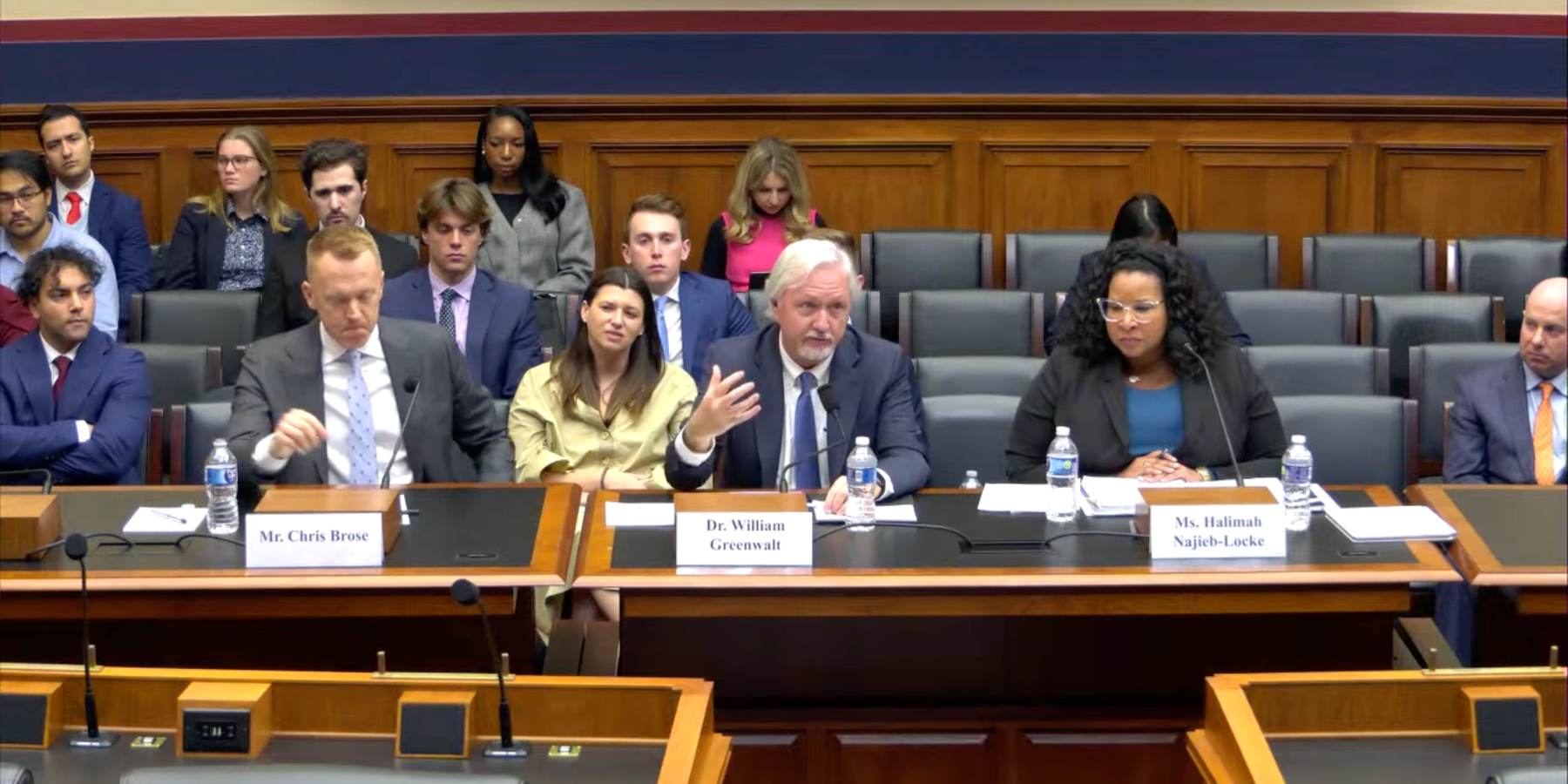Military industry mainstays and lawmakers alike are warning of imminent conflict with China in an effort to push support for controversial deep tech, especially controversial autonomous and AI-backed systems.
The conversation, which presupposed a war with Beijing sometime in the near future, took place Wednesday on Capitol Hill at a hearing of the Select Committee on the Chinese Communist Party (CCP) entitled, “The Imperative to Strengthen America's Defense Industrial Base and Workforce.”
“Planning, preparing, and then doing what is necessary as if we will be at war with China in the next three years is probably the best way to ensure that we will not be at war with China during this time,” said speaker Dr. William Greenwalt, a nonresident senior fellow at the American Enterprise Institute (AEI).
Similarly sounding the alarm, Anduril Industries Chief Strategy Officer Chris Brose suggested the U.S. would run out of weapons in under a week of war with China.
Positing that inaction may invite aggression from China, committee witnesses proclaimed that America cannot counter increasingly innovative adversaries without a radical transformation of its defense industrial base.
And in such a transformation, witnesses proclaimed that deep-tech innovations including AI, autonomy, software and adjacent tech are vital to both the development of state-of-the-art weaponry but also towards the “hyper-scaling” of production processes key towards developing competitive arsenals.
“Deterrence depends on an industrial base that can produce orders of magnitude more weapons and military platforms,” Brose said. “This is not possible on a relevant timeline with our traditional defense systems and their equally traditional means of production, but it is eminently achievable with new classes of autonomous vehicles and weapons.”
Ultimately, AI tech tools were lauded for their perceived centrality in Washington’s ability to compete amid a fraught geopolitical climate. Going unmentioned were growing ethics concerns, where, for example, AI-powered weapons and targeting systems have sparked controversy for their use in Gaza, often against civilians and for high rate of errors.
Critically, conflicts of interest also abound. Brose’s Anduril Industries has springboarded off venture capital funding from the likes of billionaire Peter Thiel’s Founders Fund into the forefront of the weapons industry. The organization has quickly forged close government ties, as showcased by Anduril co-founder Trae Stephens’ recent consideration by President-elect Trump for the deputy secretary of defense position, the second highest civilian post at the Pentagon
While Greenwalt’s AEI does not publicly disclose donor information, an AEI speaker likewise revealed in a 2023 talk that the organization receives funding from Pentagon Contractors like Lockheed Martin and Northrop Grumman.
And passing through the Pentagon-private sector “revolving door,” witness Halimah Najieb-Locke, vice president of policy and strategy for AI and computing company Entanglement, Inc., worked for the DoD as assistant secretary of defense for industrial base resilience until May of this year.
Meanwhile Najieb-Locke’s Entanglement, which focuses on AI, quantum computing, and algorithms, appears positioned to benefit from lawmakers’ positive response to the technology-forward hearing.
Indeed, lawmakers present were on the same page. “We need a healthy defense industrial base now to deter aggression and make sure the world’s dictators think again before dragging the U.S. and the world into yet another disastrous conflict,” Rep. Raja Krishnamoorthi (D-Il.) said.
The hearing’s witnesses may well believe their efforts bolster America’s competitiveness and national security in increasingly tenuous times. And yet, their affiliations suggest their efforts also line their pockets, all while advancing contentious AI-backed and autonomous military production and weapons systems.
Altogether, the witnesses’ drive for ground-up defense industrial base transformation, especially when posed in tandem with what’s depicted as imminent war with China, steers congressional discourse towards a tech-forward war-footing.
- Killer AI is a patriotic duty? Silicon Valley comes to Washington ›
- Congress poised to cede more foreign weapons oversight. Why? ›
















